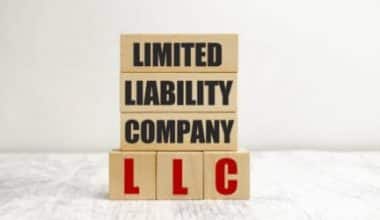Usually, a manufacturer sells things to a merchant for resale. The products are prominently marked with the maker’s branding and packaging. But on rare occasions, a retailer might provide goods with a private label. These products stand out due to the packaging and logo of the retailer. To engage in private labelling products as a retailer, here is an article for you.
Let us dive in!!!
Private Labelling
A product sold under a retailer’s own brand name but made by a third party is known as a “private label product.” Every element of the commodities or items is under the merchant’s control. That covers the characteristics, packaging, and every other element of the product.
The retailer then gets privately branded products to market. They are perceived by the customer as the business’ “own brand” goods. A seller of collaboration software introducing a private label line of conference call equipment might serve as an example. They would be created by an alternative company. However, the original company’s brand would be used to make them available for purchase.
However, How does private labelling work? Let us take a look at how it works.
How Private Labelling Works
An item normally goes through the following steps from development to sale:
- A producer creates a product;
- This product is sent to a store by the manufacturer;
- This product is sold to a customer by the store; and
- In some circumstances, the buyer may choose to sell the item privately.
Manufacturers usually utilize their own branding and packaging when starting out. In the world of private labeling, however, retailers brand the goods they have purchased from the producer with their own logos.
Some private-label retailers usually have a substantial consumer base. They regularly purchase from the following producers:
- There needs to be just one product produced, and
- Possess a tiny client.
Because they are aware that by using a well-known store’s name to advertise their goods, these producers consent to having their goods sold under a private label.
Private Label Advantages
What accounts for the majority of private labeling in so many markets, then? Simply put, it’s because both big and little stores might benefit from the strategy. The four most noteworthy advantages include the following:
#1. Flexibility.
Some shops buy everything they sell straight from producers. They depend on them as a result to satisfy market demands. Customers may want additional lines of service or features, in which case suppliers must change their product lineup. This might take some time. A retailer might be more versatile if they manufacture private-label products. If they see a shift in the client’s behavior, they will be able to respond more quickly. They may instruct a manufacturer to alter the product by having a brief video conversation online.
#2. Management of Production.
Across the board, not just in situations needing a quick response, retailers have more influence. Private labeling has the advantage of better production control. Regarding every facet of a private label product, the store sends instructions to the producer. They might mention specific substances or elements. They possess the authority to make precise demands, even for the most basic details like a product’s color or shape.
#3. The Capability to Control Costs.
Retailers are in charge of the entire supply chain when using private labeling. They evaluate and manage manufacturing costs to ensure the highest profit margins. When products are produced, the highest profit margins are ensured.
#4. Management of Branding.
Selling branded goods has the problem of not making your clients love your business. Instead of developing loyalty toward the distributors, they do so toward the producers of their preferred goods. Your name and trademark are shown on the packaging of private-label goods.
Disadvantages of Private Labels
Retail and e-commerce are seldom simple black-and-white situations. Private labeling carries a considerable risk of disadvantages in addition to its many benefits. Below are the disadvantages:
#1. A Difficulty in Developing Brand Loyalty.
In theory, branding your products is a terrific idea. However, in reality, creating substantial brand loyalty might be challenging. Your private label products do, after all, frequently compete in a given market with well-known brands.
#2. Depending on the Developers
You will have to rely on a manufacturer to produce your goods. This highlights the importance of choosing a recognized manufacturer.
Private Labelling Products
Private labelling products are frequently the best compromise for e-commerce companies that want a more distinctive and personalized option than dropshipping but don’t want to spend the time and money on in-house product manufacture.
When a factory creates something, the finished product is sold under the brand name of another company. You can select a manufacturer to produce the goods under your brand for retail sales rather than going through the internal product development process. Selling private labelling products can be especially advantageous for companies with well-known brands seeking to boost sales through a reliable revenue stream.
How Do Private Labelling Products Work?
Private labeling gives you complete control over the finished product because all you are doing is paying for someone else to make it. When you choose white labeling, however, the majority of the product’s characteristics have already been determined; all you need to do is add your logo. If you wanted cookies that looked like you had baked them, but in reality, you had no control over the ingredients and could only choose your brand’s packaging, you could find a factory that specialized in developing fantastic cookie recipes and have them produce your cookies that way.
Private labelling is a great idea if you already have many products in mind that needs to be produced or if you believe your product is significantly better than any white-label alternatives.
However, below are some items you can private label to sell off.
#1. Perfumed Oils
Essential oil usage has grown in popularity recently. Essential oils are no longer just a byproduct of the cosmetics industry; they now have their own private-label market. In addition to having great scents, many essential oils have a variety of positive effects on health and welfare. They are frequently employed in aromatherapy, massage, and house fragrance.
#2. Water Bottles
Sales of reusable water bottles have risen faster than anyone could have anticipated. Thanks to a desire for long-term changes and ecologically beneficial solutions, reusable water bottles are now utilized for activities other than bringing meals to school or going on outdoor adventures. Since everyone is looking for alternatives to single-use plastic, there are numerous niche markets you can concentrate on.
#3. Furniture
Usually, you require furniture. Whether they are remodeling, replacing a broken item, or moving to a new home, they will always require furniture. So, when choosing which private label products to promote, it’s a great option. Like the water bottle market, the furniture sector has a wide range of niches you can focus on, from flat-pack furniture to specific pieces, designs, and pricing points.
#4. Cosmetics
Because the beauty industry is one of the major ecommerce industries in the world and is not expected to slow down anytime soon, cosmetics are among the best private-label goods accessible. In order to differentiate yourself from the competition, try to come up with a concept that is unique to you. Customers interested in recently introduced tricks and trendy goods are typically the ones who keep the beauty industry alive.
#5. Eyewear
Eyewear is one private-label product that has the ability to greatly expand your online business. Anyone who wears glasses is aware of how important having sturdy, top-notch eyewear is. For your online business, it can be a good idea to make an investment in attractive, long-lasting frames. Because consumers require glasses all year long, there should never be a lull period in your sales. For reading glasses, sunglasses, and blue-light-blocking eyewear, there are additional specializations.
#6. Packaged Food
Packaged food is a fantastic illustration of a private-label item you may sell on your e-commerce website. You have a choice between eating wholesome, freshly prepared food or stuff that has undergone extensive processing. You may choose the best ingredients, recipes, and packaging designs. But bear in mind that if you want to make and sell food, there are numerous laws and health and safety regulations you must follow. Check out the local rules and ordinances in effect because they could change depending on your state.
How to Market Private Labelling Products
Once you’ve determined that selling private labelling products online is the best course of action for you, there are a few steps you need to do to get going. To make things even easier for you, here is a list of them below.
- Select the item or items you want to sell. Spend some time deciding which niche is best for your business.
- Look up any competitors online. While gaining inspiration from what they are doing well, make note of any places or components that you can make better.
- Choose a reliable manufacturer. You can choose to use online wholesale marketplaces to locate a manufacturer.
- Ordering samples will allow you to independently assess the accuracy of the products.
- Create the fonts, colors, and logos that best represent your company.
- Establish your internet store. Although there are several online ecommerce website builders, you can use Wix, Shopify, or Squarespace.
- Include your products in your store once you’ve created the product listings for them. Carefully craft detailed product descriptions and top-notch photos.
- Promote your internet business and your products to your target market.
Private Labelling for Amazon
Selling your private labelling goods on Amazon FBA is one of the most lucrative methods to achieve this. You might gain from developing and marketing your own private-label products in the present marketplaces for electronics, cosmetics, apparel, and food. You won’t have to turn your garage into a working area. Also, you won’t need to pay a specialist to create something original.
Private labelling on Amazon, only calls for locating an item that is well-liked, in production, and unbranded (which is how all products begin their life). The item must then be marked (privately labeled) as your own.
How Can I Sell Private-Labelling Products on Amazon in 2023?
#1. Review Prospective Purchases (A Prospective Option for Amazon Private Labelling)
Many products have the potential to be sold under your own label, but you should choose those that have “proven to sell well” rather than those you “think” would be profitable. When private labeling products, many Amazon merchants make this error. To avoid making the same mistake, pick popular items instead of those you truly enjoy.
The greatest location to look for possible products that meet your requirements for private labeling is Amazon itself. These are quite helpful in assisting you in discovering what specific topics are now hot, in demand, and increasing in popularity on the specific platform that you wish to sell your products on.
#2. Finding Products for Your Amazon Private Labelling Brands
The most straightforward way to obtain a private label good is through a direct connection with a manufacturer. For some Amazon sellers, the idea is unsettling, but it’s an essential stage in the process. Alibaba and Global Sources are also excellent places to start your search for various manufacturers. AliExpress, a sibling site of Alibaba, offers a slightly less intimidating alternative for beginners to order one-offs of hundreds of different products without having to get in touch with the manufacturer directly. Simply put the item in your shopping cart and finish the online transaction!
#3. Typical Price and Product Negotiation
This step in the procedure is crucial. Since your reputation as an Amazon seller ultimately hangs in the balance, requesting samples from your preferred suppliers is crucial. By getting samples, you may inspect and handle the product you’re thinking about using under your own brand while also learning more about its degree of quality.
#4. You Can Design Your Own Private Labelling on Amazon
Some would contend that this ought to be the initial phase of private labeling. When you are certain of the product you want to private label, it actually fits in better. It’s true that a brand is much more than just a logo, despite what branding gurus would tell you, which is that your private label brand should be present in every aspect of your organization. You will be able to comprehend your brand identity much easier if you are aware of the kinds of products you will sell.
#5. Make an Amazon Listing to Promote Private Labelling Goods.
Now is the perfect time for you to create your Amazon listing and get ready to market your product to a ready-made audience of over 197 million potential customers once negotiations with your supplier have been finalized, your branding designs have been ordered, and the production of your private label product has begun! Ensure your photographs are of the highest quality, your product title contains relevant keywords, and you have prepared the bullet points for your description.
#6. Utilize Amazon FBA to Fulfill Orders for Your Amazon Private Label Products.
Following the start of your product’s sales, you must set up order fulfillment. Even though you are selling your private label products on Amazon, it is most practical and effective to use their fulfillment service. Deliver your products to a fulfillment center for Amazon, and they will store, pick up, and pack your orders before sending them to your customers. Selling your private label goods on Amazon, which will handle all returns, refunds, and customer support inquiries can save you time.
What is an Example of the Private Label?
Generic paper towels, pharmacy-brand medication, and cheap shoes are a few examples of things that are frequently sold under private labels. Any retailer can employ private label branding, although the following ones frequently do so: food markets. Supermarkets.
Is it Legal to Private Label Products?
As long as all parties have consented to the private labeling’s terms and conditions, it is entirely legal. Before a product can be sold on the market, there are requirements for certification. To verify the legitimacy of the product, other requirements like private labeling are also required.
What is “White Labeling” vs Private Labeling”?
The greatest distinction is that manufacturers can sell the same generic product to many retailers under white label agreements, whereas with private label production, the deal is only with one retailer.
Is Nike a Private Label?
Private labeling is when you purchase a good or service from one manufacturer, improve it in some manner, change it in any way, add your brand to it, and then sell it. An example of a private label business is Nike.
Is Walmart a Private Label?
Walmart’s Great Value products ranked first among the top private label brands, with 72.7% of Americans buying them. Next in line were the brand’s Equate (51% penetration), Marketside (44.2% penetration), and Freshness Guaranteed (40% penetration) from the Bentonville, Arkansas-based company.
Is Trader Joe’s a Private Label?
Products under Trader Joe’s private label brand offer to deliver excellent food at competitive pricing every day. Before they put our brand on anything, they taste it, and only exceptional items are offered.
Is Costco a Private Label?
In 1995, Costco introduced Kirkland Signature goods as a collection for its various private labels. The company’s original headquarters in Washington State is where the term originated. Approximately 30 different products were available at the time, but the Kirkland brand now boasts 364 distinct items.
Is Kohl’s a Private Label?
Kohl’s Unveils Private Label, Exclusive Collections of Adaptive Clothing. In addition to the retailer’s inclusive selections for kids, Kohl’s private brands will soon include apparel options for people with impairments.
Is Target a Private Label?
Target does indeed carry private-label goods. They actually own 48 private labels, 10 of which are worth $1 billion. Target’s private label brands increased by 36% in 2021.
Related Articles
- 7 Challenges to Beware of When Starting a Computer Network Business
- HOW TO START A RECORD LABEL: How to Start a Record Label Company 2023
- Ultimate Guide to Real Estate Private Equity Investing
- HOW TO ADDRESS A PACKAGE: Addressing an item for prompt delivery






